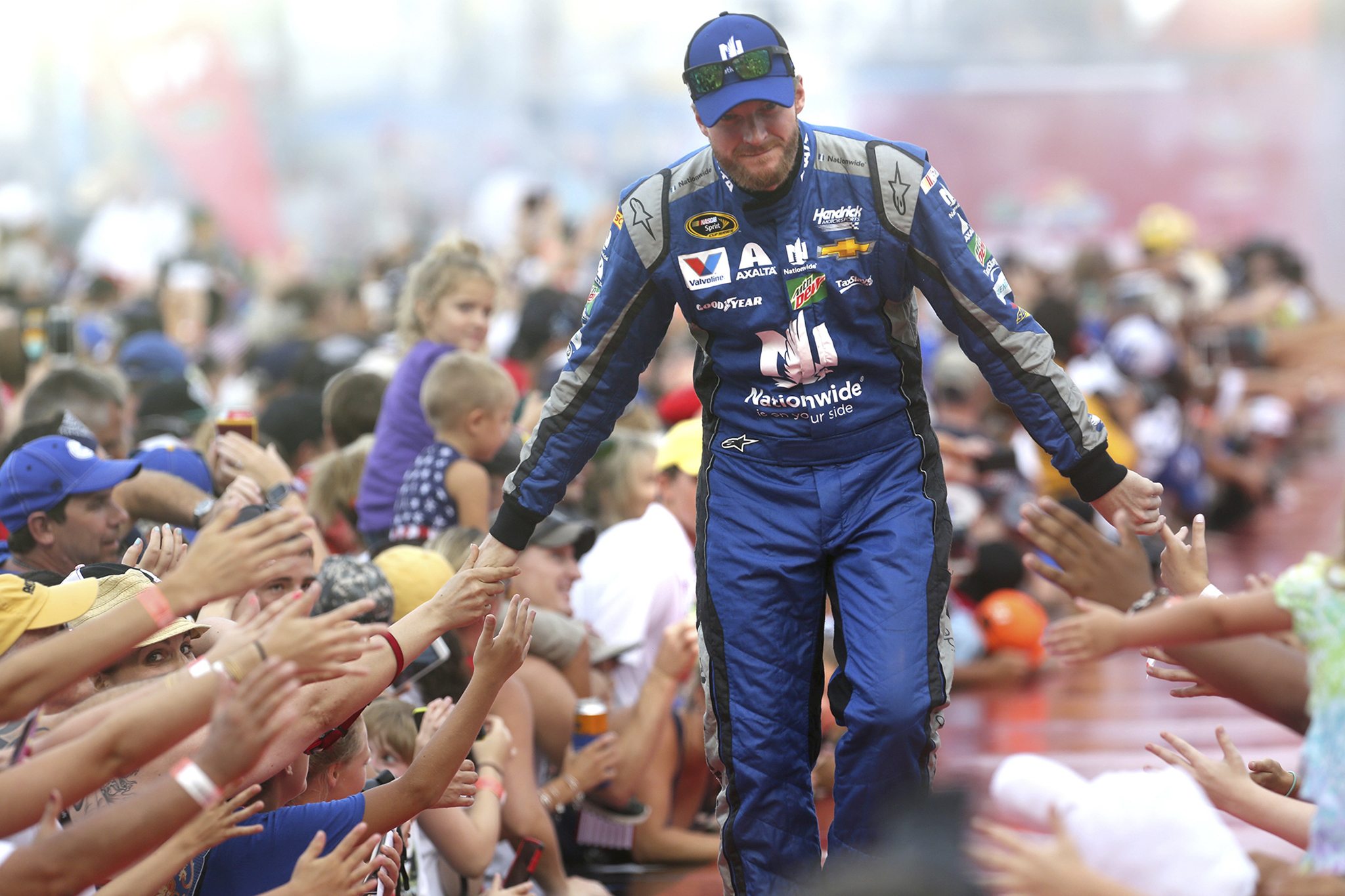Was there anything surprising about Friday’s news that Dale Earnhardt Jr. will miss the rest of the NASCAR season with concussion symptoms?
Not really, at least not if you’ve been listening to what Earnhardt has been saying before and since he violently slammed into the wall at Michigan International Speedway that Sunday afternoon in June. The hit gave Earnhardt, 41, a concussion, his third in the past five seasons. He has missed six consecutive races and will sit out the season’s remaining 12, with Jeff Gordon and Alex Bowman continuing to fill in.
What has happened this year — from the time in March that Earnhardt said he would donate his brain to science until Friday’s announcement from Hendrick Motorsports that he was through for the year — has underscored Earnhardt’s insistence on taking full ownership of his health and his willingness to speak openly of what he has learned about the dangers and mysteries of concussions.
“I wish I could return to the No. 88 team this season,” Earnhardt said in a statement Friday. “To say I’m disappointed doesn’t begin to describe how I feel, but I know this is the right thing for my long-term health and career. I’m 100 percent focused on my recovery, and I will continue to follow everything the doctors tell me. They’re seeing good progress in my test results, and I’m feeling that progress physically.”
Those words echo what Earnhardt said in early August, when he made a brief trip to Watkins Glen (N.Y.) International to show support for Gordon and the members of his team. Speaking of support, Earnhardt has benefited from the full backing of team owner Rick Hendrick through this entire episode.
“I know how hard Dale has worked and how frustrating this is for him,” Hendrick said in a statement. “He wants to be back, and we want him back, but we want it to be for the long haul. We’ve had incredible support from everyone involved with the team, including all of our sponsors. They’ve put Dale’s health first every step of the way.”
When he still wasn’t feeling right a few weeks after the Michigan wreck, Earnhardt took it upon himself to check with Charlotte neurologist Dr. Jerry Petty, knowing that a diagnosis of a concussion could force him out of his car. Since then, Earnhardt has repeatedly said he is putting his full trust in what his doctors tell him about when he can return.
“Whenever it happens, it happens,” he said at Watkins Glen.
Other drivers have taken notice of the example Earnhardt continues to set.
“It’s admirable that he’s doing the right things and he’s taking his health as priority No. 1,” driver Joey Logano said Friday. “As a race car driver, it’s a challenge because all you want to do is get back in the car. Watching on TV as your car goes around the track is not the best therapy.
“But your life and health are not worth risking for the sport. He’s got a long ways to live and if he makes a wrong decision — if God forbid something happens on the race track — it can affect the rest of his life. We don’t want to see that.”
Earnhardt will make another trip to a race track Sunday, this time to Darlington (S.C.) Raceway, where the Southern 500 is scheduled. He will speak to the media again before the race, joined by Dr. Micky Collins, who has evaluated Earnhardt at the University of Pittsburgh Medical Center Sports Medicine Concussion Program.
Earnhardt will most certainly be as candid and forthright about his condition — and its implications for his long-term health — as he has been all summer. The unanswered question is whether Earnhardt, NASCAR’s most popular driver for 13 consecutive years and one of the Cup garage’s most respected figures, will race again, although he said he expects to be back for the season-opening race at Daytona.
“I plan to be healthy and ready to compete at Daytona in February,” Earnhardt said in Friday’s statement. “I’m working toward that.”


